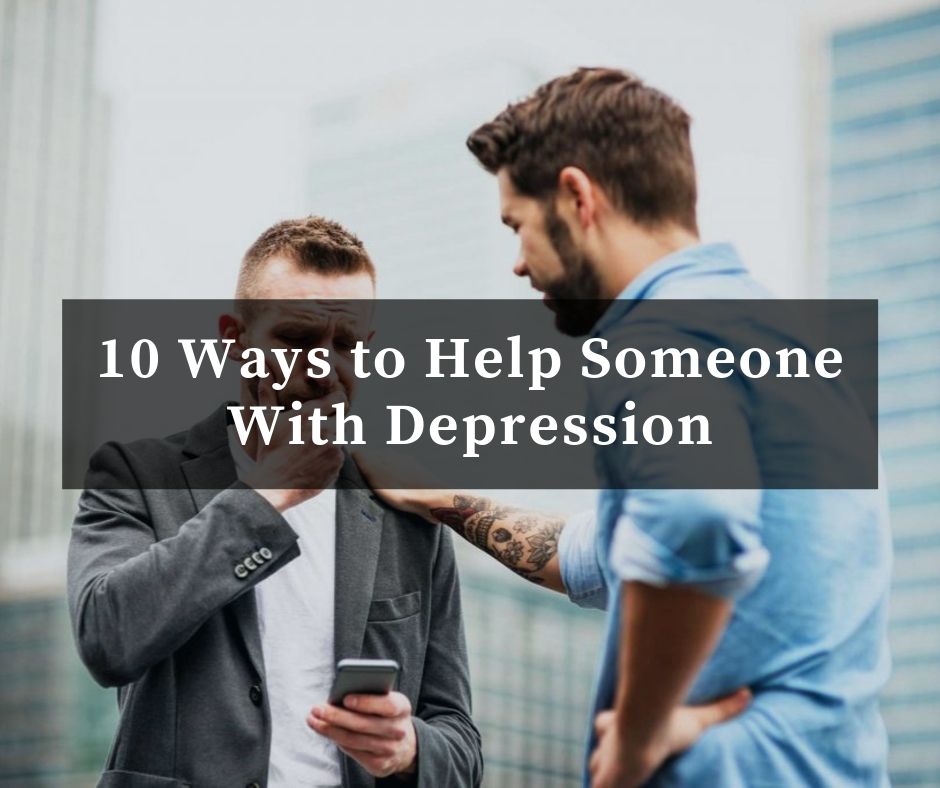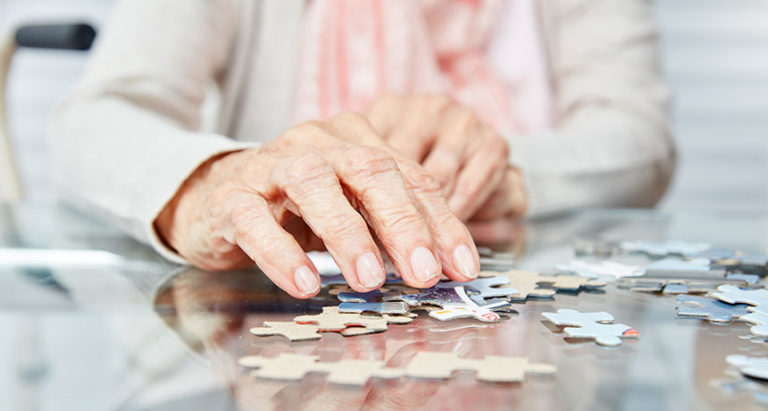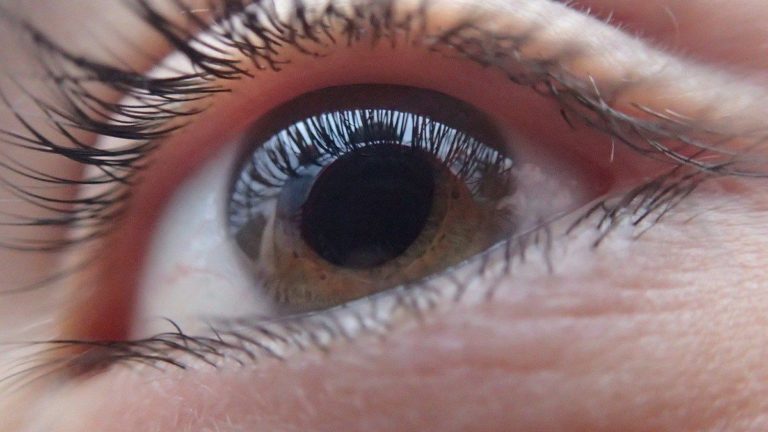
When a friend or family member is struggling, our natural instinct is to take action and give them what we consider “helpful” advice. But here’s how to help someone with depression: hold off on the guidance and just listen.
“Listening with compassion allows your friend to express the wrenching physical and emotional aspects of depression,” says Deborah Serani, a professor of psychology at Adelphi University in Garden City, NY.
“Things to say include, ‘I want to know what you’re going through,’ ‘What can I do to help you feel better?’ and ‘I’m here for you, to talk to and support you.’” Allowing people to open up on their own terms helps them feel validated.
Use the following ideas straight from mental health professionals to support loved ones with depression on their journey to recovery.
Realize that you don’t “know how they feel”
Depression is not the same as sadness. “Most people suffering from depression are hesitant to open up because of the stigma that comes with it,” says psychologist Susan Fletcher, PhD, of Fletcher & Associates Psychological Services, PA in Frisco, TX.
“Many times well-meaning friends try to make people feel better by telling them they know how they feel.” But this makes people with true depression feel like their difficulty is being minimized. Instead, convey the message: “‘I may not understand what you are going through, but I want to learn more,’” Fletcher says.
Stay in touch
It doesn’t take much to let a friend who’s struggling with depression know you’re here for them—small gestures can help them feel less isolated. “A handwritten note, or sending an e-card or paper card can brighten a depressed person’s day,” Serani says.
“Also, offering a smile is a message of hope, love, and recognition.” Texting a simple phrase like, “Thinking of you,” especially if they’re tackling something outside their comfort zone like going out in public for the first time in a while, can give them a boost.
A phone call, a visit, or dropping off a meal shows your friend you have their back. These gestures won’t treat depression, but they may provide temporary relief.
Understand you can’t cure their condition
As a support person, it’s not your role to “fix” their disease. Trying to do that places an undue burden on you as well as your loved one. People with depression aren’t going to be able to just “snap out of it”—and attempting to solve their problems will only heighten your own frustration.
“Trying to do more than supporting a person can sometimes add more stress to your world, so it’s a good idea to be mindful about striking the right balance,” Serani says. “When you support your friend, you actually are part of the cure—you’re just not totally responsible for it.”
Get friends involved in activities
The physical symptoms of depression, including fatigue, drain a person of energy. But studies have shown that exercise can be an important starting point for depression recovery. “There are physiological benefits to being more active,” says Fletcher.
“The body is likely to produce the kind of neurotransmitters in the body that can elevate mood.” The feel-good hormones dopamine and serotonin get boosted with activity, as does the bonding hormone oxytocin when you’re around others. If your friend feels up for it, suggest a walk or cooking a healthy meal together.
“Activities can help someone see outside the depression, that there are some things that are right with the world,” Fletcher says.
Be proud of their accomplishments, even small ones
If your friend isn’t ready for too much activity, focus on the small things, and cheer your friend when he or she achieves—or even attempts—them. “How to help a friend with depression find a daily structure like showering, getting dressed, maybe helping with chores, or just getting up out of bed may be a goal for the day,” Serani says.
“Say, ‘I see how hard this is and I’m so proud of the things you’re doing.’” A literal pat on the back, a wordless hug, or touching their hand can also let them know you’re happy for them.
For people with depression, the biggest strides in recovery may be made when they’re able to do the ordinary tasks they used to do before their low mood hit.
Be careful not to shame your friend
Along with depression comes feelings of shame, so take care that your well-meaning platitudes don’t reinforce those perceptions. Even saying things like, “Look on the bright side” can further the idea that their feelings are somehow wrong.
“It’s not unusual for someone with depression to think, ‘I have so much going for me so I don’t understand why I can’t appreciate it, why am I still depressed, and I feel guilty for feeling this way,’” Fletcher says.
Implying that your friend shouldn’t feel the way they do could further the downward spiral of shame. So what to say to someone with depression without making it worse? “Meet your friend psychologically where he or she is with comments like, ‘It’s hard and I know you’re strong,” and ‘I’m here to support you as you work on getting better,’” Fletcher says.
Avoid tough love
You might think you’re helping your friend by taking a hard line with them, but in fact the opposite is true. “Depression is an illness—it’s not a weakness of character, an attitude that can be changed, being lazy or not trying hard enough,” Serani says.
“You would never tell a cancer patient to ‘buck up and try harder to get better.’ But we do this to people who struggle with mood disorders.” Instead, validate that depression is real and difficult. Let them know you’re with them every step of the way.
Cut them some slack—but don’t enable bad behavior
Irritability is a symptom of depression. So while you may excuse your friend’s rudeness or insensitivity toward you, don’t be a punching bag. “You could be enabling your friend and justifying unhealthy behaviour by doing so,” Fletcher says.
“Instead, say, ‘When you said that, it hurt my feelings and I wanted you to know that I don’t believe it was your intention. I know things are difficult for you and I want to be helpful but I also want to make sure I’m honest with you. I know our friendship means a lot to both of us and I want to make sure we can communicate openly.’”
Encourage them to see a professional
This one’s a little tricky: You want to encourage them to get the support they need when they’re ready for it. “I think the best approach is to say, ‘I care about your well-being, and I’d be happy to help you find a good therapist,‘ or ‘I know that Dr. X is a depression specialist, do you want me to help you make an appointment?’” says Serani.
“How your friend reacts will tell you what the next step is.” Because it might be overwhelming for your friend to make the appointment, you can call to schedule it. Fletcher even suggests driving your loved one to the appointment and sitting in the waiting room.
On the way home, you can help your friend process what the doctor said. But if your friend is not ready for therapy, it’s OK. At least you planted the seed.
Get support yourself
One of the hardest parts of knowing how to help someone with depression is remembering to take care of yourself too. “When a friend lives with a chronic illness like depression, you want to be sure your own well-being is grounded, so taking time for self-care is vital,” Serani says.
Also, don’t let your own relationships and commitments suffer, and realize it’s OK if you need to speak with a therapist, member of the clergy, or a support group.

























